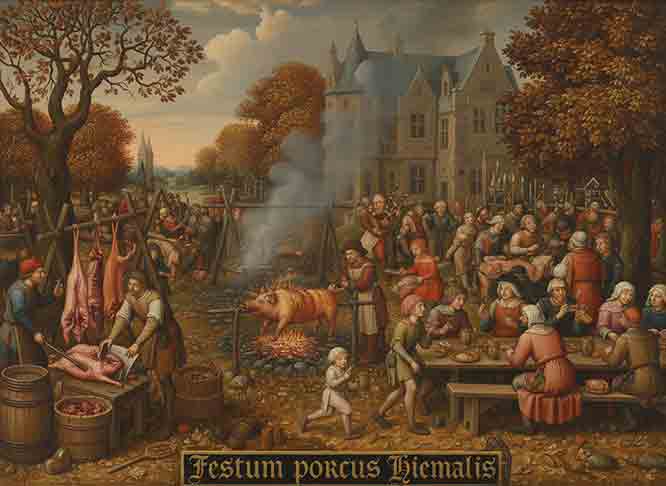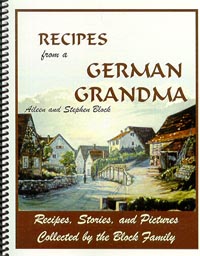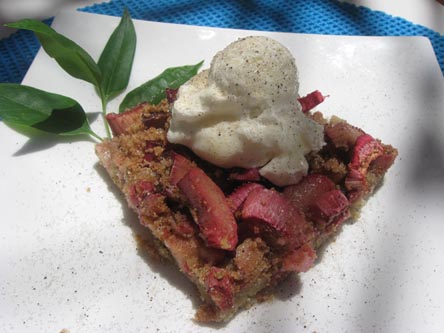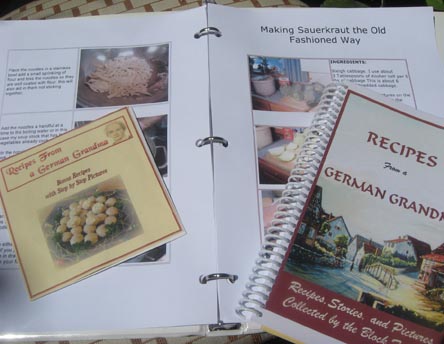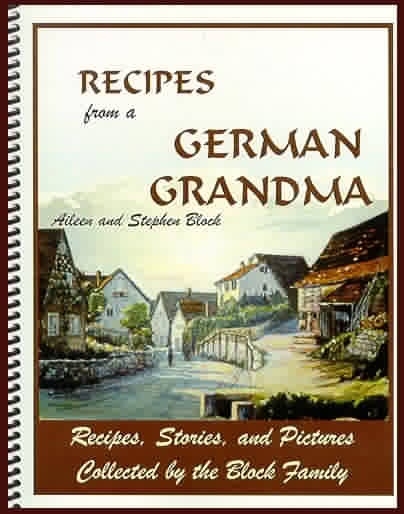|
A Story of Schlachfest
Steinsfurt, Germany
1315
The November wind carried the scent of applewood smoke through the village of Steinsfurt, and Heinrich knew the day had finally come. For three days, the massive sow had hung in the cold air of the smokehouse, her blood drained into buckets now rendered into pudding, her bristles scraped clean with heated stones and sharp blades until her skin gleamed pale as winter moonlight.
"Father, the pit is ready," called his son Jakob from the courtyard, where orange coals glowed like dragon's eyes in the pre-dawn darkness.
Heinrich emerged from the smokehouse with his brother Friedrich, the two of them bearing the sow on a stout oak pole thrust through from shoulder to haunch. Two hundred pounds if she was an ounce—the finest from their herd, saved since spring for this Schlachfest feast. The entire village would gather, and Lord Dietrich himself would preside from the high table.
The roasting pit had been dug three feet deep and lined with river stones, fired since yesterday sunset until they radiated heat like a baker's oven. Young Jakob and his cousins had tended it through the night, feeding split logs until the flames died to perfect coals. Now the stones shimmered with accumulated warmth, and a layer of oak and beech embers glowed across the pit's floor.
"The hazel rod—where is it?" Heinrich asked.
His wife Greta appeared with the carefully prepared spit, a green hazel branch as thick as a man's wrist, stripped of bark and sharpened at both ends. Hazel would not taint the meat as pine would, nor break as birch might. She had rubbed it with lard and wrapped the center grip with wet linen strips.
Together, the brothers positioned the sow over the pit, setting the spit ends into notched posts driven deep into the earth on either side. The animal hung two feet above the coals, close enough that fat would drip and flare, far enough that the meat would roast rather than char.
"The basting!" Friedrich reminded, and Jakob rushed forward with the earthenware crock. Inside, Greta had prepared their family's closely-guarded mixture: rendered pork fat skimmed from yesterday's rendering, wild honey from the forest hives, crushed juniper berries, garden sage rubbed to powder between her palms, and coarse salt from the merchants of Lüneburg. Heinrich dipped a bundle of rosemary branches into the mixture and painted the pig's skin with reverent strokes.
"Every quarter turn, we baste," he instructed his son. "Never let the skin dry, or it will crack and weep its juices into the fire instead of keeping them within."
As the sun climbed over the thatched roofs, Heinrich and Jakob began the long, steady work of turning the spit. A quarter rotation every handful of minutes, marking time by the shadows and the drip of fat that sizzled on the coals below. With each turn, more basting—rosemary brushes soaked and applied until the skin began to glisten, then to bronze, then to transform into crackling mahogany.
Neighbors emerged from their homes, drawn by the smell. Old Werner, the village's eldest, approved with a gap-toothed nod. "Your father's father taught him well, Heinrich. I remember the feast of '63—that was a roasting. The skin crackled like breaking ice."
By midday, the village square had filled. Women brought rye bread, trenchers carved from yesterday's loaves, pots of turnips sweetened with the first apples. Children played at the square's edges, occasionally venturing close to the pit to watch the meat transform, the skin now tight and gleaming, splitting in places where fat bubbled through like precious amber.
Friedrich tested the haunch with a long iron skewer, pushing deep into the flesh. When he withdrew it and pressed it to his lip, he smiled. "Hot to the center. Another hour for the shoulders."
The final basting came as the church bells rang None. Heinrich used the last of the honey mixture, painting with careful devotion until every inch of crackling shone. The skin had become a landscape of golden peaks and valleys, some sections nearly black with caramelization, others pale gold where fat had collected and crisped.
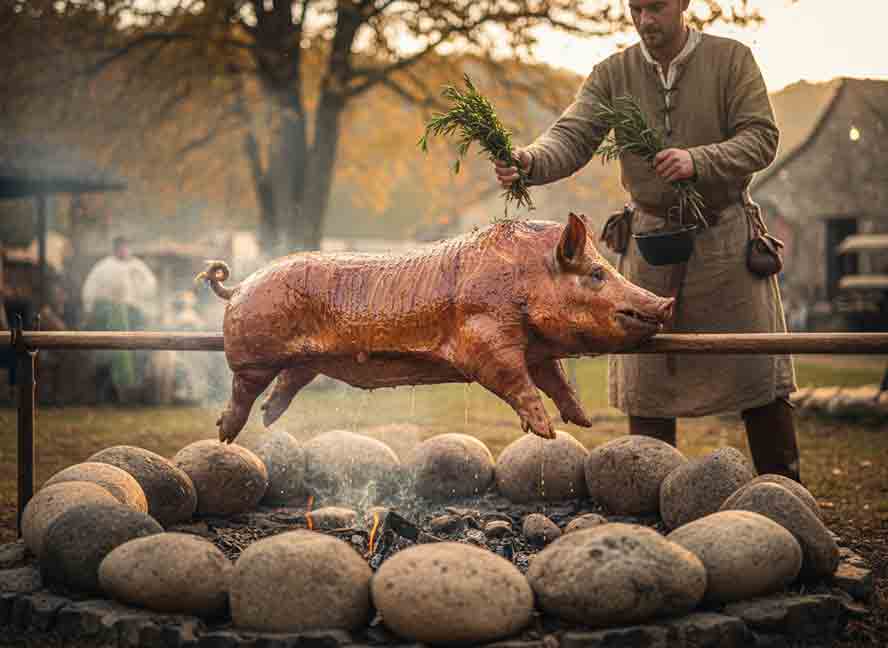
When Lord Dietrich arrived on his gray stallion, the pig came off the spit. Six men lifted it, still on its hazel rod, and carried it in procession to the great board laid across barrels in the square's center. The lord's steward produced a long knife, and Heinrich had the honor of the first cut.
He sliced behind the shoulder, and the skin shattered like thin glass—that perfect crackling his family was known for. Beneath, the meat steamed, white fat marbling through rose-colored flesh that fell apart at the knife's touch. The first piece went to the lord, the second to Father Benedict, the third to old Werner.
"A masterwork," Lord Dietrich declared, and the feast began.
As twilight came and torches were lit, Heinrich sat with his back against the wall of his house, watching the villagers eat and laugh and drink the autumn ale. His hands smelled of smoke and rosemary. His son sat beside him, already dreaming of the day he would tend such a feast.
"You'll teach me, Father? All of it? The pit, the timing, the basting?"
Heinrich smiled and tousled the boy's hair. "As my father taught me, and his father him. This is how we honor the feast days. This is how we remember we are blessed."
In the square, someone had begun to sing, and the November stars watched over Steinsfurt as they had for a thousand years, as they would for a thousand more.
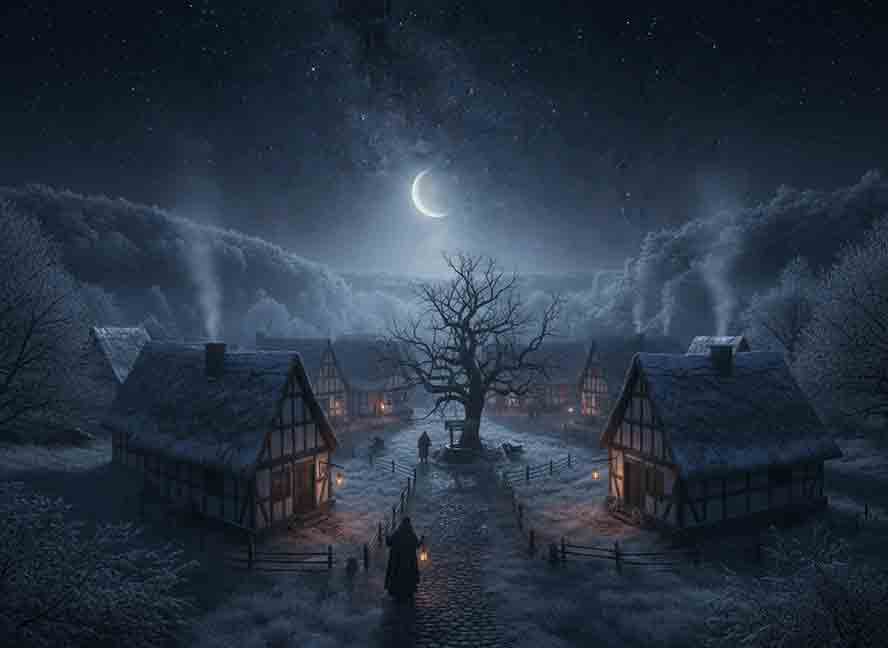
|


